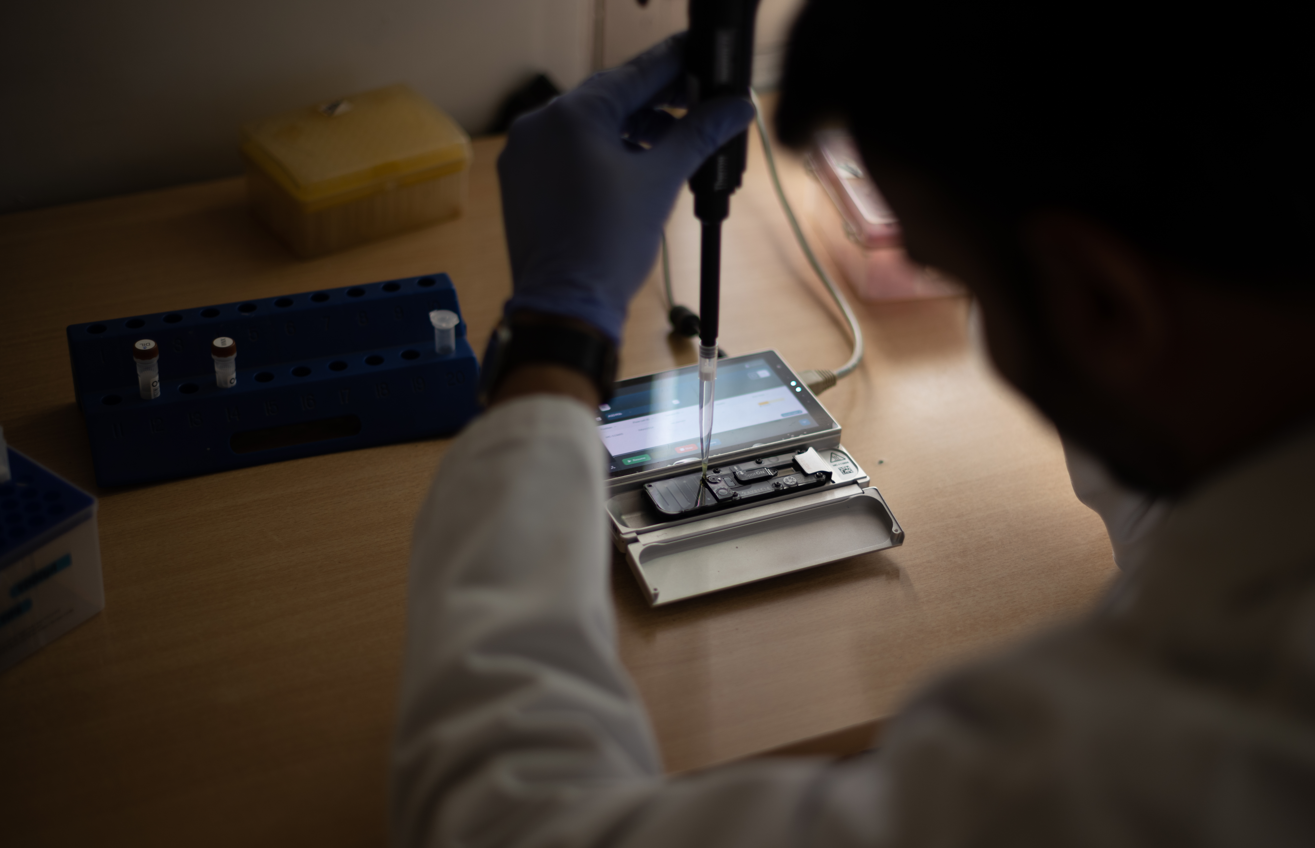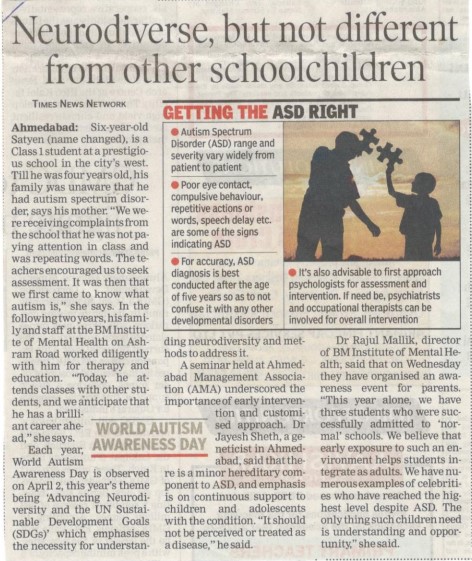FRIGE scientists decipher role of structural variants in autism
India's first systematic and cutting-edge genetic study in 23 children with autism spectrum disorder explored the role of long-read whole genome sequencing and structural variants in the cause of autism.

The study published in BMC Medical Genomics provides evidence of limited role of structural variants (CNVs, translocations, inversions etc.) in the genetic aetiology of non-syndromic autism spectrum disorders (ASD) in India.
The first and biggest observational study involved 23 children with non-syndromic ASD and their parents from across India who had previously undergone existing genetic testing pathway- karyotyping, Fragile-X, microarray, and whole exome sequencing.
The study was led by Dr. Harsh Sheth, Dr. Shweta Ramdas, and Dr. Frenny Sheth from FRIGE’s Institute of Human Genetics, Ahmedabad, and the Indian Institute of Science, Bangalore, who were involved in genetic and statistical analysis.
The research began in 2022 whereby 23 children with ASD and their parents’ DNA were analysed using cutting-edge third-generation sequencing technology- long read whole genome sequencing by Oxford Nanopore.
Our team used sophisticated set of algorithms to detect complex genetic abnormalities called as structural variants in a dataset of approximately 1 terabyte in size. Our team showed limited role of structural variants in causing ASD.
The study sets out benchmark for technological implementation for genetic diagnosis of ASD in India, whereby, short-read whole exome/ genome sequencing provides highest benefit and yield.
The study was funded by the Gujarat State Biotechnology Mission.
Is this important for India?
It is estimated that about 1 in every 100 child born is affected with ASD.
Considering that nearly 50% of the ASD cases have a genetic cause, providing a genetic diagnosis can help families receiving targeted treatment, genetic counselling, prevent further transmission in the next pregnancy and reduce social and monetary burden on the family.
How do I diagnose genetic cause of ASD?
Past guidelines provided by the American College of Medical Genetics suggest carrying out genetic testing with microarray first and follow-up by whole exome sequencing, if required.
However, our study provides strong evidence of carrying out whole exome sequencing in the first instance if your child is suspected with ASD due to its superior diagnostic yield.
Based on our previous study and other data from around the world, latest guidelines from the American College of Medical Genetics recommends utilisation of short read exome/ genome sequencing as a first tier test in ASD patients.
You can contact us to know more.
Outreach activities by FRIGE scientists
April being the Autism Awareness Month, our Head of Advanced Genomic Technologies Division (Dr. Harsh Sheth) gave a live interview on Doordarshan Girnar about basic tenets of autism and Parkinson disease.
Chairman of FRIGE Institute of Human Genetics (Dr. Jayesh Sheth) gave a live interview on Doordarshan’s Aapna Mudda Apni Waat show, whereby he outlined how to diagnose ASD patients and what treatments are currently available for them.
Celebrating World Autism Day 2025 with a snippet on ASD in the Times of India.
